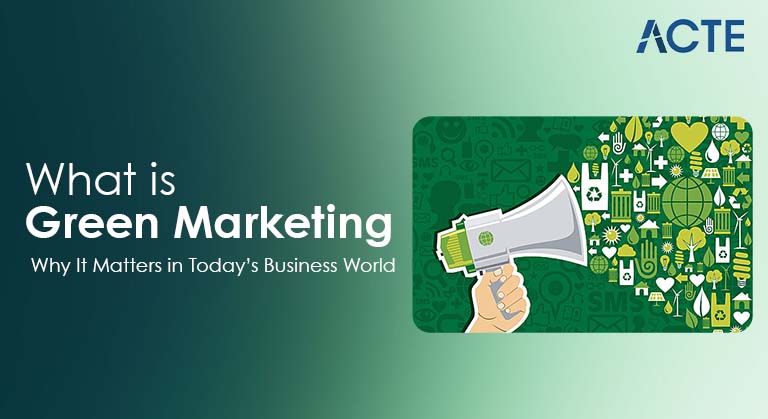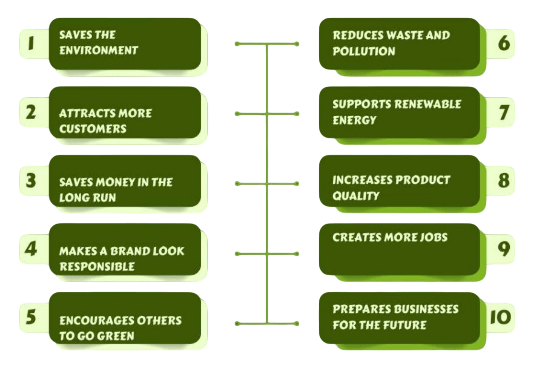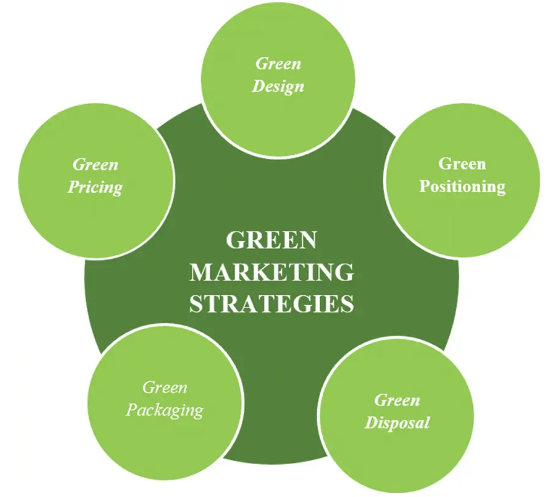
- Introduction to Green Marketing
- Importance of Green Marketing
- Green Consumer Behavior
- Green Marketing Strategies
- Eco-labeling and Certifications
- Challenges in Green Marketing
- Benefits to Companies and Consumers
- Conclusion
Introduction to Green Marketing
Green marketing is the strategic practice of promoting products and services based on their environmental benefits. It involves designing, producing, packaging, and advertising offerings in ways that emphasize sustainability and eco-friendliness. Companies that adopt green marketing aim to minimize their environmental impact while meeting the growing consumer demand for responsible and sustainable choices. This approach reflects a shift in consumer values, where purchasing decisions are increasingly influenced by concerns about climate change, pollution, and resource depletion. Green marketing covers a wide range of initiatives, including the use of biodegradable packaging, sourcing raw materials ethically, reducing carbon emissions in production, and investing in renewable energy. It also involves transparent communication, where companies highlight their environmental efforts in advertising, labeling, and brand messaging. By doing so, they not only appeal to environmentally conscious consumers but also differentiate themselves in competitive markets. Moreover, green marketing is more than just a promotional strategy; it is a reflection of a company’s commitment to environmental stewardship. As global awareness of environmental issues grows, businesses are recognizing that sustainable practices are essential for long-term success. Consumers are more likely to support brands that demonstrate genuine concern for the planet, and regulatory pressures are pushing companies toward greater environmental accountability. In this context, green marketing becomes a vital tool for building trust, fostering brand loyalty, and contributing to global sustainability efforts. When implemented authentically, it aligns business goals with environmental responsibility, paving the way for innovation, competitiveness, and a positive impact on the planet.
Importance of Green Marketing
The importance of green marketing has grown significantly in recent years, driven by increasing awareness of environmental issues and the urgent need to address climate change. As sustainability becomes a global priority, consumers are placing greater value on ethical and eco-friendly business practices. Companies that invest in green marketing not only showcase their commitment to environmental responsibility but also align themselves with evolving consumer expectations. This alignment can strengthen brand reputation, enhance customer loyalty, and differentiate businesses in a competitive marketplace. Green marketing is more than a trend; it is a strategic approach that yields both environmental and economic benefits. By adopting sustainable practices such as reducing waste, conserving energy, and using eco-friendly materials businesses can improve resource efficiency and lower operational costs. Additionally, green initiatives often inspire innovation, leading to the development of new products and processes that meet the dual demands of profitability and sustainability. Moreover, green marketing helps organizations stay ahead of tightening environmental regulations and standards, reducing legal risks and enhancing compliance. It positions companies as proactive and forward-thinking, which is increasingly valued by investors, stakeholders, and customers alike.

Beyond the tangible business advantages, green marketing plays a crucial role in the broader effort to protect the planet. By promoting sustainable consumption and production patterns, companies contribute to the preservation of natural resources and the reduction of environmental harm. Ultimately, green marketing supports the long-term goal of creating a more sustainable future, ensuring that future generations inherit a cleaner, healthier, and more balanced world.
Green Consumer Behavior
- Environmental Awareness: Green consumers are conscious of environmental issues such as pollution, climate change, and resource depletion. This awareness influences their purchasing decisions toward eco-friendly products.
- Preference for Sustainable Products: These Green Consumer Behavior actively seek products that are sustainable, biodegradable, recyclable, or made from renewable resources. They prioritize items with minimal environmental impact.
- Willingness to Pay More: Green Consumer Behavior are often willing to pay a premium for products that demonstrate clear environmental benefits, reflecting their commitment to sustainability over cost savings.
- Influence of Eco-Labels: Eco-labels and certifications like Energy Star or Fair Trade play a significant role in green consumer choices by providing credible information that helps them identify genuine green products.
- Ethical Considerations: Beyond environmental impact, green consumers value ethical business practices such as fair labor, humane treatment of animals, and corporate social responsibility when choosing products.
- Active Information Seeking: Green consumers tend to research and gather information about products’ environmental credentials before making a purchase, showing a proactive approach to sustainable consumption.
- Behavioral Consistency: While some consumers express interest in green products, true green consumers consistently integrate sustainable choices into their daily lives, from reducing waste to conserving energy and supporting eco-friendly brands.
- Eco-Friendly Product Design: Develop products using sustainable materials, energy-efficient processes, and minimal packaging to reduce environmental impact. This strategy appeals directly to eco-conscious consumers.
- Transparent Communication: Clearly communicate the environmental benefits of products and company practices through honest and straightforward messaging. Transparency builds trust and combats skepticism about green claims.
- Eco-Labeling and Certifications: Obtain credible third-party certifications like Energy Star, USDA Organic, or Fair Trade to validate environmental claims. These labels help consumers easily identify genuine green products.
- Sustainable Supply Chain: Implement sustainable sourcing, ethical labor practices, and eco-friendly logistics. Highlighting a green supply chain reassures customers about the company’s overall commitment to sustainability.
- Green Packaging: Use recyclable, biodegradable, or reusable packaging materials. Packaging innovation reduces waste and enhances the product’s eco-friendly appeal.
- Consumer Education and Engagement: Educate customers about environmental issues and the benefits of sustainable products through campaigns, social media, and community involvement.
- Corporate Social Responsibility (CSR) Initiatives: Integrate green Marketing Strategies with broader CSR efforts such as carbon offset programs, environmental philanthropy, or community sustainability projects.
- Greenwashing: One of the biggest challenges is misleading consumers by exaggerating or falsely claiming environmental benefits. Greenwashing damages trust and can harm a company’s reputation if discovered.
- High Costs: Sustainable materials, eco-friendly production methods, and certifications often come with higher costs. These expenses can make green products more expensive and less competitive on price.
- Consumer Skepticism: Many consumers are skeptical about green claims due to past experiences with greenwashing or unclear information, making it difficult for companies to build credibility.
- Limited Consumer Awareness: Not all consumers fully understand environmental issues or the importance of sustainability, limiting the market for green products and reducing demand.
- Complex Supply Chains: Ensuring sustainability throughout the entire supply chain from raw materials to distribution is complex and challenging, requiring coordination with multiple stakeholders.
- Regulatory Compliance: Navigating the increasing number of environmental regulations and standards across different regions can be difficult and costly for companies.
- Balancing Performance and Sustainability: Sometimes, green products may not perform as well as conventional alternatives, making it harder to convince consumers to switch, especially if the price is higher.
Green Marketing Strategies

Eco-labeling and Certifications
Eco-labeling and certifications are essential components of green marketing, as they provide third-party validation of a company’s environmental claims. These labels help bridge the trust gap between businesses and consumers by offering credible evidence that products meet specific environmental or ethical standards. Widely recognized certifications such as Energy Star, USDA Organic, Fair Trade, and FSC (Forest Stewardship Council) serve as important indicators of a product’s sustainability, guiding consumers toward more responsible purchasing decisions. For businesses, eco-labels offer a competitive edge in a crowded marketplace. Certified products can stand out on shelves, appeal to environmentally conscious consumers, and even justify premium pricing. Additionally, eco-certifications can open access to new markets, especially as demand for sustainable goods continues to grow globally. They also demonstrate a company’s commitment to corporate social responsibility and can enhance brand reputation and consumer loyalty. However, the increasing number of eco-labels and varying certification criteria can lead to consumer confusion. When too many labels with different standards exist, it becomes challenging for consumers to distinguish between truly sustainable products and those merely engaging in “greenwashing.” This highlights the pressing need for standardization, transparency, and education in eco-labeling. To be effective, eco-certifications must be clear, credible, and universally recognized. When used properly, they support the goals of green marketing by promoting accountability, encouraging sustainable production practices, and empowering consumers to make environmentally responsible choices. In this way, eco-labeling not only benefits individual brands but also contributes to broader environmental and social progress.
Challenges in Green Marketing
Benefits to Companies and Consumers
Green marketing provides a wide range of benefits for both companies and consumers, making it a powerful strategy in today’s business environment. For companies, adopting green marketing can lead to significant brand differentiation by setting them apart from competitors through a clear commitment to sustainability. This often results in stronger customer loyalty, as environmentally conscious consumers prefer to support brands that reflect their values. Additionally, green marketing can open doors to premium markets, where customers are willing to pay higher prices for products that demonstrate genuine eco-friendly practices.Beyond market advantages, companies can achieve operational efficiencies by implementing sustainable practices such as reducing waste, conserving energy, and optimizing resource use. These efficiencies can lower costs and improve profitability. Green marketing also helps businesses mitigate risks related to evolving environmental regulations and societal expectations, ensuring compliance and reducing the likelihood of reputational damage. For consumers, green marketing offers access to products that align with their ethical and environmental values, enabling more informed and responsible purchasing decisions. It also raises awareness about environmental challenges, encouraging individuals to become more conscious of their consumption habits and their impact on the planet. This increased awareness fosters a culture of sustainability where consumers actively seek out and support products that contribute to environmental preservation. When consumers make environmentally responsible choices on a large scale, the cumulative effect can drive significant positive environmental change. Thus, green marketing not only benefits individual companies and consumers but also plays a crucial role in advancing global sustainability efforts.
Conclusion
Green marketing has evolved beyond being a mere trend to becoming a crucial necessity in today’s business landscape. With growing environmental awareness, consumers are increasingly seeking products and brands that reflect their values around sustainability and social responsibility. As a result, companies must adapt by aligning their practices, products, and messaging with green principles to remain relevant and competitive. This shift demands more than superficial efforts; it requires genuine commitment to sustainable development and transparent communication. Despite its importance, green marketing does face challenges. One major concern is greenwashing, where companies exaggerate or falsely claim environmental benefits, risking consumer trust and brand reputation. Additionally, implementing sustainable practices can involve higher costs and operational changes, which some businesses may find difficult to manage. However, these challenges are outweighed by the substantial benefits green marketing offers. Authentic green marketing fosters strong brand loyalty, helping companies build long-term relationships with environmentally conscious consumers. It also enables market differentiation, allowing businesses to stand out in increasingly competitive sectors. Moreover, green marketing drives positive environmental impact by encouraging sustainable production and consumption patterns. When supported by credible certifications and transparent practices, green marketing becomes a powerful tool for building trust and engaging consumers meaningfully. Looking ahead, the future of green marketing holds vast potential for innovation, collaboration, and leadership. Businesses that embrace this approach can play a pivotal role in creating a greener, more responsible world, setting the standard for corporate sustainability while meeting the evolving expectations of their customers.





